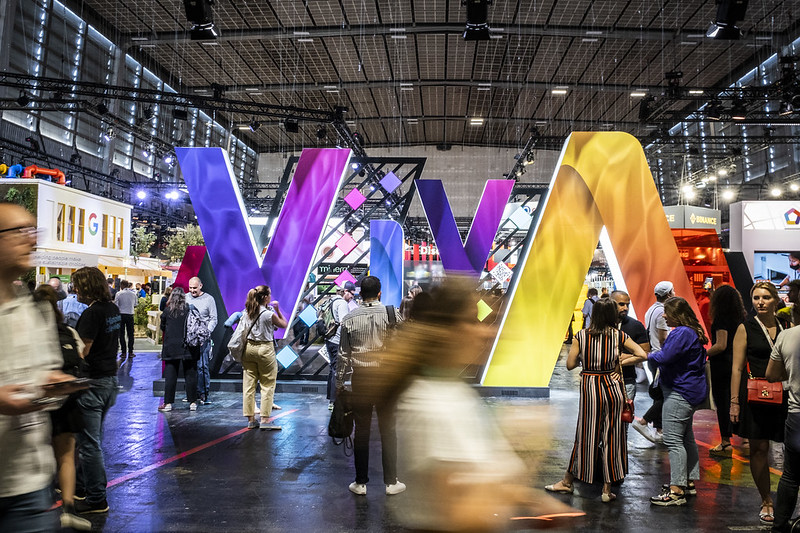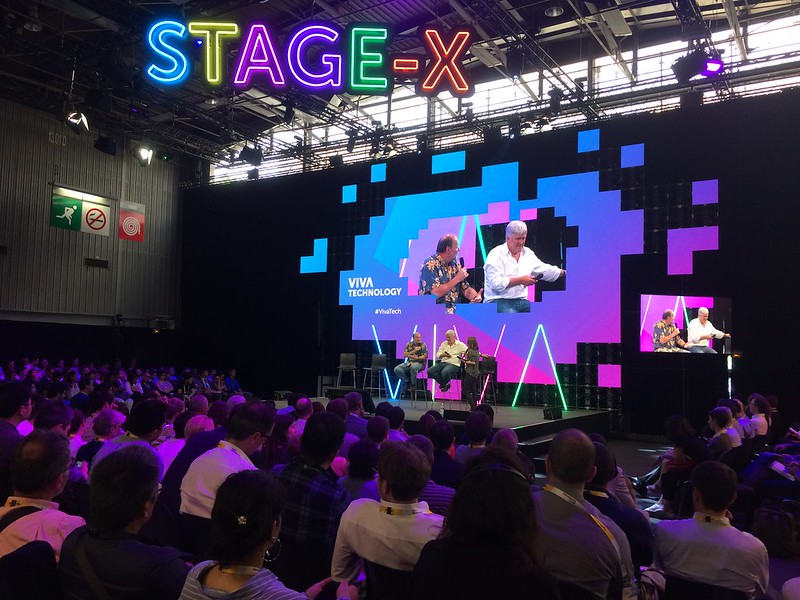#WHAT IS VIVATECH?

Europe’s tech event, from 15 to 18 June 2022, at the Porte de Versailles. It brought together 2,000 exhibitors, including 1,700 start-ups, and 300 conferences with high-level speakers from the digital industry, major international groups and public bodies in charge of innovation.
The objective of this event is to share the trends of the moment, to discover and test emerging technologies and services, and to create a vision of the world of tomorrow. With lockdown ended, it was time for this European tech event to get back to its mission of “showcasing the technology and start-ups that will shape the future... or not”. The IDEA Innovation team attended the event and offers you the chance to figure out which innovations should be adopted and which should be dropped.
#THE OFFICIAL THEMES OF VIVATECH 2022
- Web3 and Metaverse: Web3, a new and still confused concept, replaces or complements Web2, making the internet a more open place (escaping the control of GAFAM?) and generating value for its users wherever they are. Metaverse, a field of innovation that focuses all attention, ambition and fantasies on marketing, user experience and a source of potential new value creation.
- Marketing: user experiences and new-generation customer acquisition tools.
- Environment: in addition to being a source of inspiration, the ability to demonstrate a positive environmental impact is now a must for any new value proposition.
- Mobility: the change of paradigm around consumption and new energies, both in terms of the mobility of goods and people.
- Future of Work: the new relationship to work, new solutions for collaboration, supported by virtual or augmented realities.
- HR: retaining talent, attracting new skills, being an employer rather than a recruiter.
- Regulation and democracy: the technological promises around the fight against disinformation, anonymity when it is irresponsible and finally the accountability of content providers.
- Inclusion and values: opening up to differences and welcoming them better, and adapting environments for retraining, working and collaboration in an ethical and responsible manner.
#THE MAIN TRENDS
Global warming is no longer a debate in itself and a positive contribution to the energy transition is becoming a must for any new value proposition.
On the other hand, the search for social and societal impact remains at a niche level with regard to the inclusion of groups generally excluded from employment (dys, autism, physical disability).
Web3, the definition of which differs according to approaches:
- The militant approach: Web2 under the control of GAFAM has broken its promises. The open architecture and free access actually lead to the creation of a concentration of value which remains in the hands of a few large dominant groups. The principle of anonymity has been misused and gives rise to too many uncontrolled abuses (fake news).
- The new model approach: everyone's contributions supported by proven traceability can be remunerated according to the value created in the framework of new emerging economic models. These models are partly based on the metaverse that gives rise to transactions based on cryptocurrencies.
Today, investments in Web3 are multiplying every year without it being possible to determine who is most right, the sceptics or the enthusiasts.
Metaverses: they provide new user experiences that address marketing, consumption, training or entertainment challenges either within the framework of conventional economic models in Web2 or within the framework of Web3 approaches.
Today, investments are multiplying and Facebook's move into this field is an event in itself, generating upheaval even among the group's own leaders and shareholders.
Augmented reality: this is now reaching maturity, with greater potential for professional use compared to virtual reality (which remains strong in the entertainment field). This will accompany the emergence of a "future of work", freeing us from physical distances, reducing technical complexities (operations assistance) and supporting business development (training assistance).
Artificial intelligence is no longer a value proposition in itself but a means of integrating into most new technological offerings. The main focus is on semantic processing (character recognition and associated analysis, direct translation), complexity processing and associated automation to assist in decision-making, rather than just predictive analysis.
Autonomous and soft mobility: solutions geared towards urban logistics, individual and collective travel in an effort to reduce the carbon footprint.
It should be noted that hydrogen is mentioned less than more developed all-electric solutions. Finally, drones and electric flying machines, including those with passengers, now also seem to offer viable solutions with announcements that they will be marketed from 2023.

3G: While the promises of ease of use for private individuals are falling on deaf ears due to the growing debate on digital frugality, business-oriented solutions for professional use (private 3G network) are now more established in response to clear technical challenges (e.g. lower latency times for autonomous mobility or "slicing" to guarantee a safe flow for a range of applications without external disturbance).
Space as a source of inspiration for green tech: solutions developed to make hostile planets habitable are also providing inspiration for green tech players, for example, around growing plant-based food soil-free in your home.
#CONFERENCES WITH A SENSE OF HUMILITY AS WELL AS AMBITION
Retaining talent and attracting new skills: some recognise the difficulties (the "big quit" effect in the United States). The values that a company holds must now be demonstrated in recruitment processes that need to be re-invented.

Management and leadership: new behaviours and relationships at work are shaking up codes and customs. A major challenge is coaching a large population of managers in this area.
Faster time to market: tech giants complain that it is still too complex and difficult to develop quickly enough. This is the first issue.
The second issue is that the user experience of these new solutions is still considered too restrictive (too many specific skills required), this is particularly the case for industrial solutions.
Cybersecurity is an essential theme requiring a specific approach and skills. It’s a unique issue to be tackled without being able to compare the economic impact of an attack on the one hand, and the level of investment required to protect against it on the other.
To sum up, VIVATECH 2022 is marked by a return to business in an ever more uncertain world. Fewer big announcements and much more commitment to mature and more responsible solutions.


